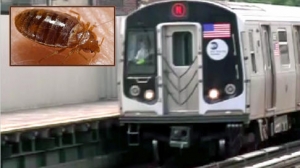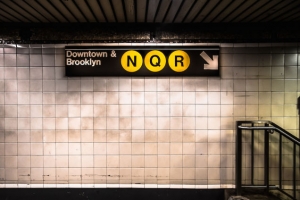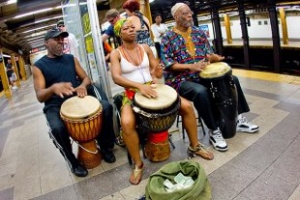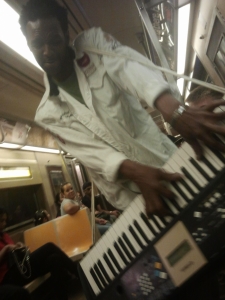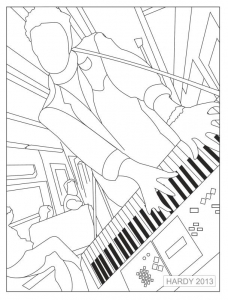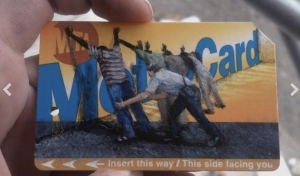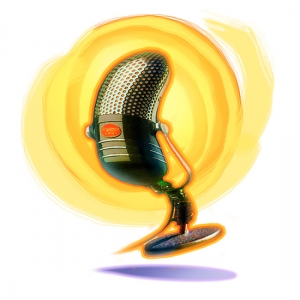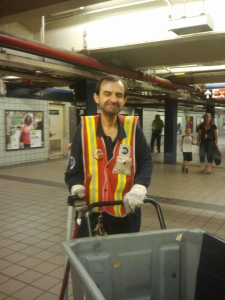NEW YORK CITY – AUG 29: Music Under New York African hand-drummers perform in Penn Station, NYC on Aug. 29, 2012. MUNY has been presenting music to commuters of NYC public transit since 1985.
Photo Credit: littleny/Shutterstock
July 18, 2014 |
The NYPD has made a big show of sanitizing the subway system so far in 2014, removing panhandlers, peddlers, the homeless and artists, writing tickets and making arrests. So far this year, panhandling arrests are up 260%, and arrests for dancing in train cars have also spiked: 240 arrests so far compared with fewer than 40 in the first half of 2013. The arrests are “classic Bratton,” according to Eugene O’Donnell of John Jay College of Criminal Justice, referring to NYPD Commissioner Bill Bratton’s fetishizing of broken windows-style policing and his unique affinity for New York’s transit system. According to Bratton, by targeting low-level crime, the NYPD is preventing more serious situations from developing. The theory is wildly held, but remains unsupported by any substantive research. Despite the arrests,Mayor Bill de Blasio says no crackdown exists, but has indicated his support for “broken windows” nonetheless. For its part, the NYPD acknowledges that dancing on the subway cars is not a major issue for New Yorkers, and that no injuries have been reported as a result of the performers.
“Is it a significant crime? Certainly not,” Bratton said recently. But “Does it have the potential both for creating a level of fear as well as a level of risk?”
Early-on in his first turn with the NYPD, Bratton rejected notions of “community policing,” disparaged it as “social work,” leading even Ray Kelly to take umbrage at the zero-tolerance approach. “You can probably shut down just about all crime if you are willing to burn down the village to save it,” Kelly told Time Magazine in 1996.
So what exactly is going on, and what are the long-term implications of spending a tremendous amount of city resources policing an issue no one but the NYPD has raised as a problem?
We spoke to Heidi Kole, who has spent the last ten years performing music underground, about what she has seen in the Bratton/de Blasio era. The interview has been edited for clarity.
Tell me about getting started as a busker.
The first time I sang underground it was in the dead of winter. It was freezing and dark and completely frightening to be honest. I’d performed all over the globe but in those trains I felt completely naked. But once I got up the courage and began to sing that first day underground, something happened on that platform at 59th St. While I was singing, something left me and what remained was this unexpected feeling of abandonment and joy. I had no idea what’d happened that day, but in all my years of performing on stages all over the US and the world, I’d never ever felt quite like I did on that platform that first day underground. It wasn’t until I’d finished writing my book, ‘The Subway Diaries’ four years later, that I realized, what had left me was ego. And once your ego is not in the foreground, ruling your every move and thought, what you’re left with is a feeling of complete and utter bliss. That’s what got me and that’s what’s kept me coming back.
Don’t get me wrong, it’s not always easy busking in the New York City Subways. Sometimes you have really bad days. But after you’ve been underground for a while you know for every bad day you have, you’ll stumble on a good one to even it all out. And busking, it’s not for everybody. It’s blistering in the summer, freezing in the winter. It smells, it’s loud. But there’s something magical about what happens down there. It’s the people, and that unspoken dialogue/exchange of energy that happens down there on a daily basis – that’s why I do it.
